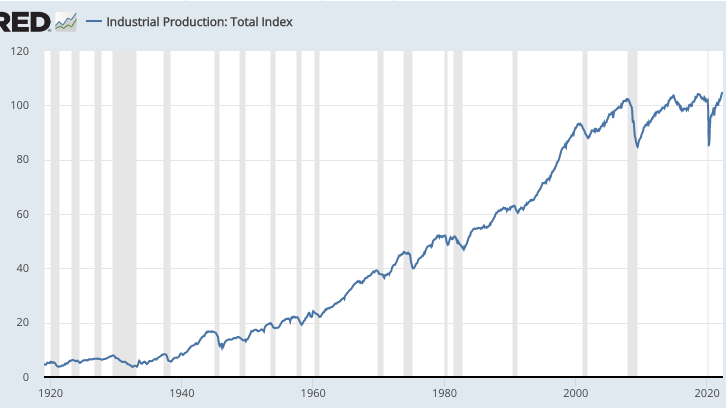In Colombia, the pension system is regulated by Law 100 from 1993. This law divides the pension system into two main regimes: the average premium regime, which is public and managed by Colpensiones. The Colombian pension administrator is a state-owned industrial and commercial company, organized as a special financial entity, associated with the Ministerio del Trabajo (Ministry of labor). The other is the individual savings regime with solidarity, a private capitalization fund overseen by pension fund administrators (AFP’s).
The private capitalization fund acts as if it were a type of savings account, in which each active worker who is contributing has an account in his name, in which he deposits his pension savings every month; such savings are invested by the AFP’s in the stock market, buying shares of companies, currencies, public debt, etc. In this way said pension savings are capitalized, as interest is added and upon reaching retirement age; an accumulated yield will have been generated with which the monthly disbursements will be paid.
The private pension system represents an individual’s savings for their retirement. The principle is simple: the more one saves, the higher the eventual payout. This system emphasizes individual responsibility, as each contributor’s pension amount depends directly on their personal contributions.
For the public pension system, contributors to Colpensiones allocate a portion of their salary every month toward what is considered pension savings. However, these contributions don’t go to individual accounts but are pooled into a common fund. Unlike the private system, this money isn’t invested to grow over time. Instead, it’s directly used to fund current pensions. Essentially, today’s workers support the pensions of current retirees.
This is where the main problem of the public pension system lies, and it is that the more pensioners there are in Colpensiones and the fewer people are contributing in this public system, the less money will be left to pay the current pensions. This happens every year. According to the report on the situation prepared by the Contaduría General de la Nación, during the years 2021 and 2022, there is a trend that Colpensiones’ income is lower than its expenses and costs, by billions of pesos.
So, it is up to the State to find the resources to pay the current pensions. In light of this, money from public expenditure is used to meet the payments in question. All Colombians would be forced to pay more taxes to defray such expenditure. According to Azuero (2020), up until the year 2018, the debt presented by the Colombian State with Colpensiones was 787 billion pesos.
As a result, while the public pension fund accumulates debt, the private fund accumulates generated value. In addition, the private funds have different modalities; one is free to choose which one they wish to belong to, and they also have short and long-term investments, guaranteeing greater financial security for the contributor.
The Mercer CFA Institute’s global report on pensions compares 47 pension systems around the world, and by studying the most recent report, Colombia ranked 24th, while the Netherlands is in first place.
In the Netherlands, the Future Pensions Act was recently approved, with the objectives of achieving a supplementary pension that rises faster, a more individual and clearer pension accumulation, and a pension system more in line with people who no longer work for the same employer for 40 years.
Pension systems around the world are under great pressure due to financial crises which have produced relentless inflation, geopolitical uncertainty, economic instability, and other negative consequences that affect individuals.
Pension Reform Proposed By The Government Of Gustavo Petro
The government of Gustavo Petro has proposed a pension reform in Colombia that aims to alter the current workings of the system. The reform aims to dissolve the two pension regimes created by Law 100 of 1993 and adopt a multi-pillar system as follows:
- Solidarity: This would grant a monthly stipend of 233,000 Colombian pesos to individuals over 65 years of age. Notably, the government has yet to clarify if this aid will be specific, such as only for elderly individuals living in poverty, or available universally to everyone over 65. This distinction is essential as not differentiating can result in sizable fiscal deficits.
- Contributory: The average premium regime, managed by Colpensiones, will gather contributions up to the equivalent of three minimum wages. Meanwhile, AFPs will manage contributions beyond this sum. Essentially, those earning up to three minimum wages will be mandated to contribute to Colpensiones, even if they prefer not to. This change might challenge the financial health of the AFPs, given their broad investment activities.
- Semi-contributory: A provision will cater to those who have contributed, yet fall short of the retirement criteria. Notably, a similar system exists within the private solidarity-based savings scheme. Here, a fraction of savings in private accounts aids individuals who contributed but missed the necessary pension threshold.
- Voluntary Individual Savings: Those earning above three minimum wages and contributing to Colpensiones can optionally deposit additional funds into a separate private pension plan.
Besides the outlined system, the proposal would reduce women’s minimum contribution period by 50 weeks for every child, capped at three children. This adjustment has a dual effect. On one hand, it expedites women’s retirement. On the other, it may affect their employability, as companies might hesitate hiring women foreseeing a shortened work tenure.
Mandating individuals earning up to three minimum wages to contribute to Colpensiones could bolster the system’s short-term and mid-term viability. The system’s structure resembles a pyramid, where younger contributors’ payments sustain those higher up. Absent these payments, the structure risks instability, jeopardizing future pensions for current contributors. Therefore, while reforms targeting vulnerable populations are commendable, they may inadvertently risk their long-term financial stability.
This doesn’t mean that such reforms aren’t necessary, as objectives like improving citizens’ quality of life should always be pursued in a society. However, the means employed to achieve these goals must be carefully examined. Nevertheless, the strategies to attain these objectives require thorough scrutiny, necessitating collective participation.
Omar Camilo Hernández Mercado is a law student at the Universidad Libre de Colombia, Senior coordinator of Students for Liberty in Colombia, and a seminarist in “The Austrian School of Economics” at the International Bases Foundation.














